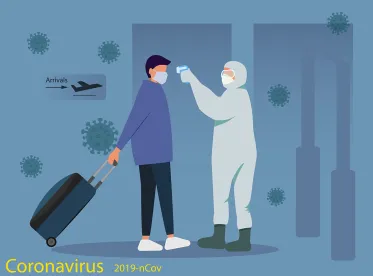As U.S. employers brace for the impact of the Coronavirus on the U.S. workforce and consider the possibility of employees working remotely, a common area of concern is the Form I-9 process.
Form I-9 Requirements: Unwaived. For new hires, Section 2 of Form I-9 requires an in-person meeting between the employer (or an employer’s authorized representative) and the employee to inspect the employee’s proof of employment authorization and identity within three business days of the employee’s date of hire. In an environment where employers are seeking to limit in-person meetings, this presents special concerns.
There is currently no exception for the timely completion of Section 2 of Form I-9 when a new employee is hired (or Section 3 when the employment authorization of an existing employee must be reverified.)
Employers contemplating a remote work mandate and/or option should add Form I-9 compliance into any planning discussions. As noted, a new hire must present proof of employment authorization to the employer or the employer’s authorized representative. While the employer will be liable for any deficiencies in the I-9 process created by the authorized representative, use of an employer authorized representative is a viable alternative already used by many employers in remote hire situations. (An authorized representative can be any person an employer designates to complete and sign Form I-9 on its behalf.)
Best Practices. When employers use an authorized representative, best practices include providing clear instructions on the I-9 process to both the employee and the authorized representative and a second-tier review of any completed I-9s, with real-time correction of any errors that clearly reflect any later revisions to the original form (initialed, dated, and in different color ink).
In the Coronavirus situation (and generally when there are extreme circumstances that impact an employer’s ability to comply with I-9 creation and retention obligations, such as natural disasters), it’s a good idea for employers to create a file memo explaining any exigent circumstances and attach it to Form I-9s created during the emergency period if employers expect that it may not be business as usual for I-9 compliance.
Employers should be thoughtful about how ICE may later view the I-9s in the context of an enforcement action. There are no guarantees, but an ICE agent who finds an I-9 with an error related to the challenges during this time period may be less likely to fine and/or more likely to mitigate related fines stemming from the same. It’s also important to think about the “big picture” in terms of employer practices for form creation and retention.
For example, an employer should not stop doing forms simply because it uses an electronic I-9 system and employer authorized representatives completing Section 2 do not have access to that system. Using a paper Form I-9 is always an option, and employers should consider all creation and retention options as well as related obligations during this period.
New Form Version Required. In any event, all employers should be using the latest version of Form I-9 for new hires. USCIS recently released the latest version of Form I-9 (edition date 10/21/19), which all employers must use starting no later than May 1, 2020.
Other Coronavirus Immigration Considerations. Additional immigration-related best practices for employers amid the Coronavirus outbreak include:
-
Monitor travel alerts and restrictions. Even employers who do not sponsor immigration processes may see a disruption in their workforce that stems from employees who are unable to enter the U.S. or travel abroad on business if the employee has spent time in or plans to travel to a country to which the U.S. has restricted travel.
-
Identify any employees who are planning to leave the U.S. to obtain an immigration-related benefit in the near term (for example, visiting a U.S. Consulate abroad to obtain a visa or traveling outside the country to a U.S. port of entry to make an in-person application). Related travel may be restricted and/or inadvisable, and employers should work with counsel as soon as possible to identify any available alternate plans to protect status.
-
Designate back-up support for the employer-authorized signer on immigration forms/processes. Many immigration processes are time sensitive and require the employer’s authorized signer to sign documents and provide process support. If an employer has just one designated employer contact, and that employee is sidelined by illness, caring for a sick relative or a child home from school, etc., employers may see a disruption in their immigration processes that could be mitigated by advance planning and communication to a “back-up” support person who could step in if necessary.
-
Reinforce USCIS guidance that sick employees should work with counsel to cancel or reschedule appointments, if necessary, to ensure the safe working environment of our government employees.
These I-9 and immigration-related considerations are only some of the issues that employers are currently facing during these uncertain times.



 />i
/>i

